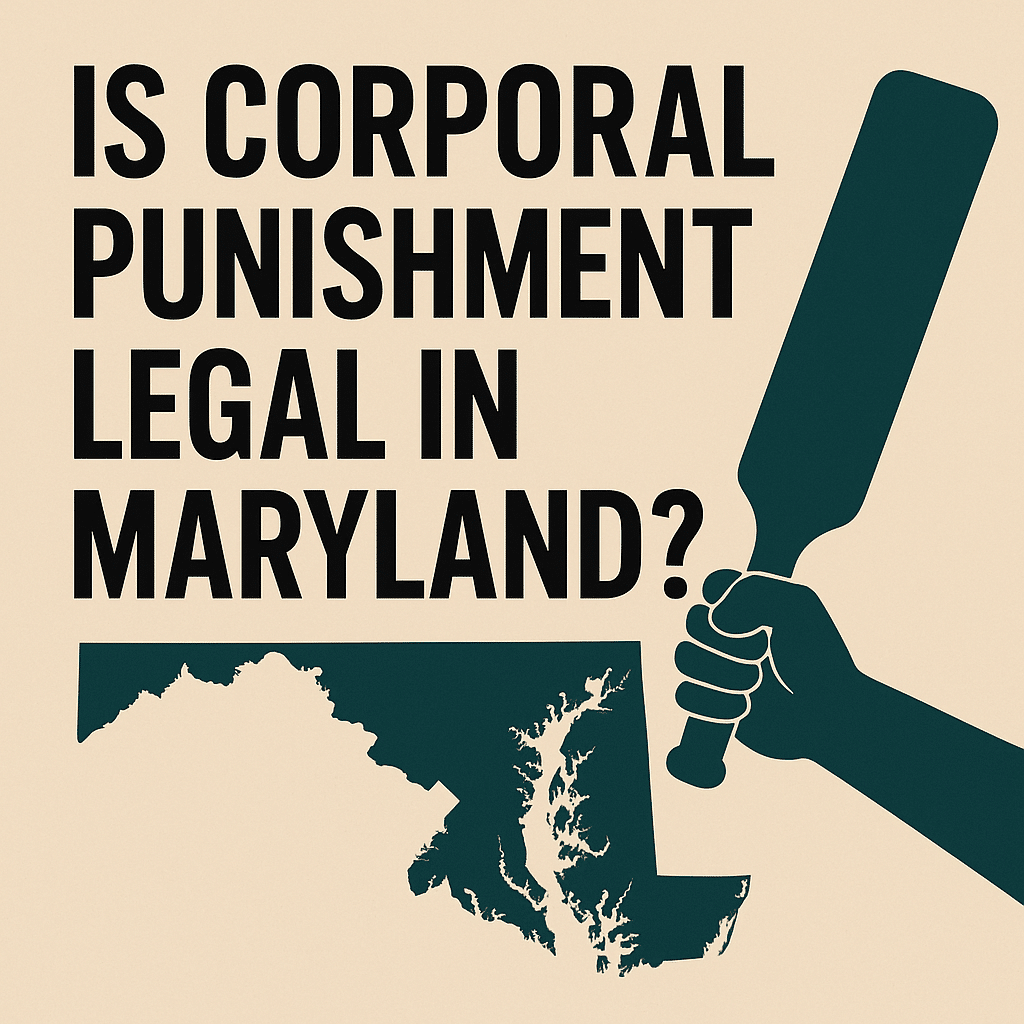
Corporal punishment—physical discipline such as spanking or paddling—has long been a controversial topic in the United States. If you’re a parent, teacher, or school administrator in Maryland, you may be wondering: Is corporal punishment legal in Maryland? The answer depends on who is administering the punishment and where it takes place. This post breaks down the legality of corporal punishment in Maryland, with key insights for both families and educators.
Corporal Punishment in Maryland Public Schools
In Maryland, corporal punishment is strictly prohibited in public schools. Under the Code of Maryland Regulations (COMAR) 13A.08.01.11, public school personnel are banned from using physical force intended to cause pain or discomfort as a disciplinary method.
This includes common forms of physical discipline such as:
- Spanking
- Paddling
- Slapping
- Striking with objects
Maryland’s ban aligns with a growing national trend against corporal punishment in public education. Educators are instead encouraged to rely on positive behavioral interventions, restorative practices, and counseling.
Is Corporal Punishment Allowed in Private Schools?
Unlike public schools, private schools in Maryland are not universally bound by COMAR 13A.08.01.11. That means corporal punishment may still occur in certain private educational settings, depending on the institution’s policies and whether it receives public funding.
However, private schools must still comply with Maryland’s child abuse laws, and any form of physical punishment that causes injury or trauma can result in criminal liability for assault or child abuse. Parents concerned about discipline policies in private schools should review each school’s student code of conduct and speak directly with administrators.
Is Corporal Punishment Legal at Home in Maryland?
When it comes to discipline in the home, Maryland law permits reasonable corporal punishment by parents or legal guardians. However, the law draws a clear line between discipline and abuse.
According to Maryland Family Law § 5-701, child abuse includes:
“Physical injury, not necessarily visible, by other than accidental means to a child by a parent or other person who has permanent or temporary care or custody or responsibility for supervision of a child.”
This means that corporal punishment that results in bruises, welts, cuts, or emotional harm may be considered abusive and trigger intervention by Child Protective Services (CPS) or law enforcement.
Factors Considered When Evaluating Parental Discipline:
- Severity of the punishment
- Whether objects were used (e.g., belts, paddles)
- Age and vulnerability of the child
- Frequency and context of the physical discipline
If there’s a report or suspicion of excessive punishment, CPS may launch an investigation and determine whether abuse occurred.
Legal Risks of Corporal Punishment
While spanking your child may not be illegal in Maryland, it can still have legal consequences if it’s reported as excessive. A CPS investigation could lead to:
- Loss of custody or visitation rights
- Placement on a child abuse registry
- Criminal charges for child abuse or assault
In schools, using corporal punishment in violation of Maryland law can result in:
- Employment termination
- License suspension
- Civil or criminal charges
Bottom Line: Is Corporal Punishment Legal in Maryland?
| Setting | Legal Status |
|---|---|
| Public Schools | ❌ Prohibited under COMAR regulations |
| Private Schools | ⚠️ Not explicitly banned, but abuse is illegal |
| At Home by Parents | ✅ Legal if reasonable and not abusive |
Need Legal Help in Southern Maryland?
If you’re facing allegations related to child discipline or corporal punishment in Charles County, St. Mary’s County, Calvert County, or Prince George’s County, you need an experienced criminal defense lawyer who understands Maryland’s family and juvenile law system.
At Southern Maryland Criminal Defense, we represent parents, teachers, and caregivers accused of excessive discipline or child abuse. We’ll listen to your story, explain your rights, and fight for the best outcome possible.
📞 Contact us today for a free consultation.
